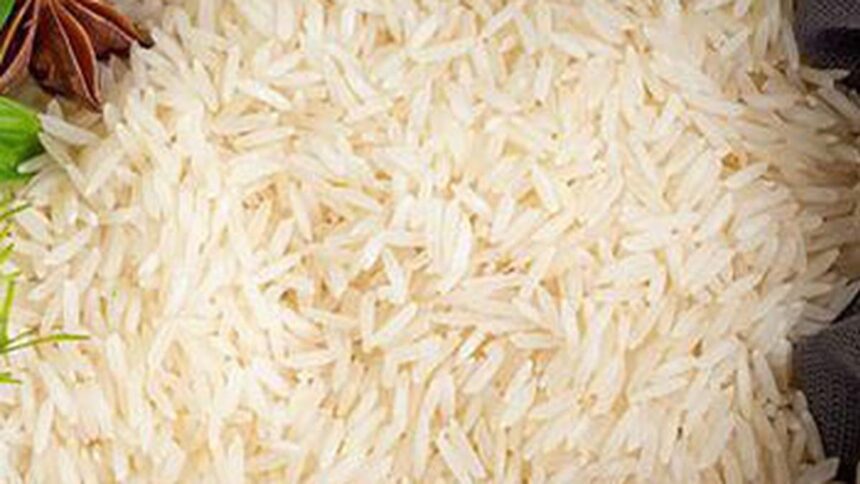India is unlikely to accept any proposal from the European Union (EU) to separate the issue of the Geographical Indication (GI) tag for basmati rice from the negotiations of the Indo-EU free trade agreement (FTA), according to analysts.
“Recent reports indicating concerns regarding the recognition of Pakistan’s application for a GI tag for basmati rice are likely to complicate FTA discussions. The EU may explore procedural or diplomatic avenues to prevent this dispute from undermining the negotiations and may attempt to decouple the issue,” said S. Chandrasekaran, a historian specializing in basmati GI.
The Indian government places significant importance on agriculture and dairy, making it reluctant to dissociate the GI tag issue for basmati rice from FTA discussions. “Basmati rice is intertwined with India’s sovereignty and cultural heritage. If the EU insists on excluding the GI tag topic from the Indo-EU FTA, it is essentially attempting to overlook our sovereignty and heritage, which contradicts the India-EU Strategic Agenda,” Chandrasekaran added.
Currently, the EU has kept pending India’s application for a basmati GI tag, which would grant exclusive marketing rights, since July 2018, although it was officially announced in 2020. Meanwhile, Pakistan submitted its own GI application in January 2024, which the EU republished in April 2024. This application faces significant opposition from Italy, and the EU has acknowledged this opposition, suggesting that Pakistan may not receive the GI tag.
The EU has encouraged both India and Pakistan to submit a joint application for the GI tag. However, India has refused, asserting that Pakistan’s application includes Indian regions, thereby questioning India’s sovereignty.
A trade analyst pointed out the fundamental difference in perspectives toward the GI issue between India and the EU. For the EU, GI represents an opportunity for economic benefit. Conversely, in India, GI is closely linked to culture and tradition, values that the country is unwilling to compromise.
In a recent joint communication to the European Parliament and Council dated September 17, Brussels reiterated the strategic agenda between the EU and India, stating, “The conclusion of an Agreement on Geographical Indications would enhance trade opportunities and spur economic development by ensuring effective protection of names of iconic products in both parties’ markets.”
The analyst noted that by incorporating GI protection within the framework of the EU–India FTA, the EU has effectively tied basmati rice to key strategic deliverables, without making similar ties to its relations with Pakistan. This underscores the importance of Indo-EU relations.
India imported approximately $355 million and $572 million worth of wine and distilled spirits in recent years, with the EU holding a market share of 13% ($118 million) in India’s wine and spirits market. The EU-India FTA has the potential to generate an additional $600 million in annual market access for the EU in India, indicating accelerated growth for EU wines and spirits.
Conversely, the market size for basmati rice in the EU stands at $766 million. In 2024-25, India exported $237 million worth of basmati rice to the EU. If basmati rice is excluded from the negotiations while EU wines and spirits remain, India could face a potential loss of $481 million in the GI products category.
Among GI products, basmati rice commands the highest demand. Other products may have growth potential, but they are unlikely to bring immediate trade benefits. Moreover, the EU is also protecting its local rice milling industry by restricting the import of certain basmati rice varieties.
Additionally, the EU has acknowledged shared security concerns, stating that both Europe and India confront serious terrorist threats. The EU noted that the tragic Pahalgam attack in April 2025 was a stark reminder of terrorism’s human cost and emphasized the need for collaboration in counterterrorism and related efforts.
The EU has stated its commitment to “strengthening counterterrorism cooperation,” which reflects its trust in India as a security partner. This trust may be compromised if the EU dismisses India’s claims regarding the GI tag for basmati rice.
The European Commission previously denied a request from India’s Agricultural and Processed Food Products Export Development Authority (APEDA) for access to documents related to Pakistan’s GI tag application, although some requested documents were later partially or fully shared on November 12, 2024. Pakistan also sought similar access but was denied, leading to a pending challenge against the Commission. Although the court has yet to determine any application against the Commission’s decision, this situation may have implications for the Indo-EU FTA.










